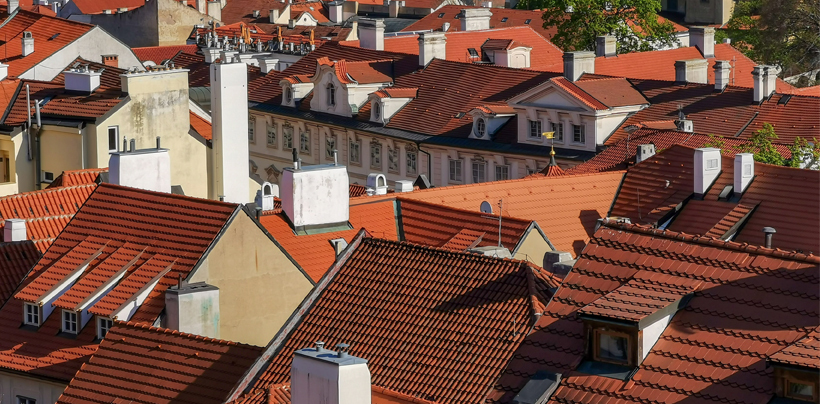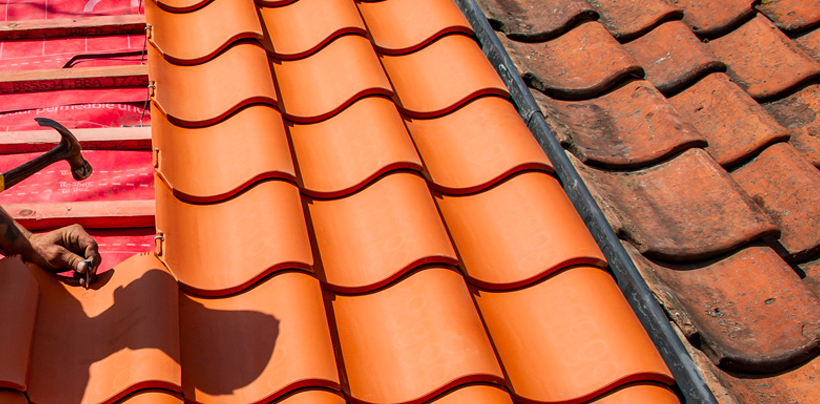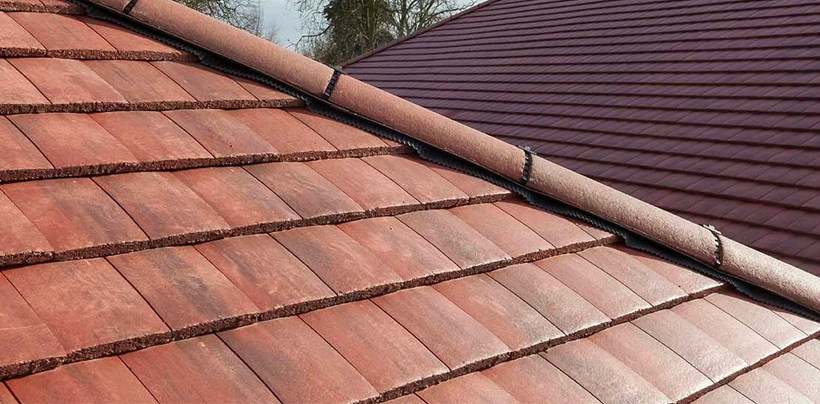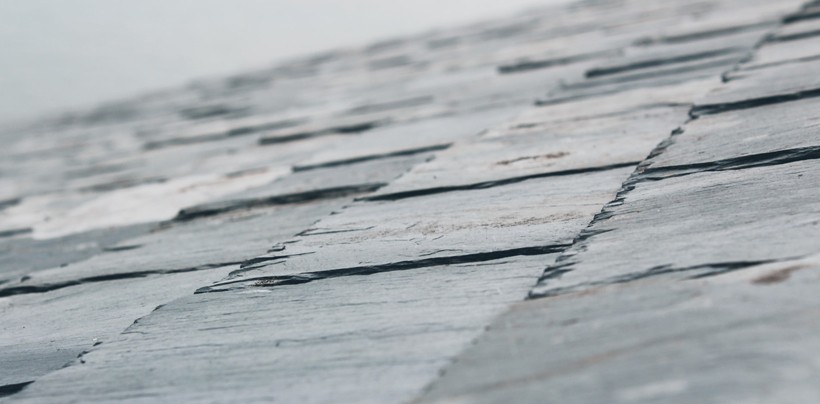What Are Roof Tiles Made Of?

Roof tiles are by far the most popular roofing material used here in the United Kingdom. They’ve been used by civilisations across the globe in various forms for thousands of years. Over recent centuries, production methods and materials have been streamlined considerably – leaving only the most effective in use today.
In recent decades, new materials have been tried and tested in tile production, each with wildly varying aesthetics and performance. As with more traditional tile materials, only the most effective modern designs have enjoyed continued use and mainstream popularity. In fact, many of these contemporary materials and designs are now just as popular as traditional roof tiles.
Professional tradespeople and homeowners alike will opt for a type of roof tile based on material and appearance alone, unaware of the many different benefits and features they may offer. In this guide we’re going to take a look at some of the most widely used roofing tile materials, and what these tiles can offer you in terms of aesthetics, durability, longevity and more.
Types of Roof Tiles
Clay

Clay is one of the oldest materials used in roofing. Some of the earliest examples found by archaeologists in China date back as far as 10,000 BC. From there it spread across Asia, the Middle East and Europe – most notably to Ancient Rome. The Roman style is still very popular today, due to its iconic profile and practicality – in fact, the Marley Double Roman is one of our customers’ favourites.
One of clay tiles’ greatest advantages is their durability and resistance to wear. They’re so long-lasting in fact, that they are often some of the only remains of ancient buildings found in archaeological sites. So, it’s easy to see why homeowners still choose clay to this day. This longevity makes clay roof tiles extremely cost-effective across their long lifetime, despite the higher initial costs.
Due to its history and superb effectiveness, clay is considered the quintessential “traditional” roofing material in Britain. It can be found on homes of all styles right across the country, and along with slate roofing, is considered the most premium option among builders and architects.
Clay has many valuable benefits beyond its longevity. With a wide range of different types of clay roof tile available, the versatility and the variety of styles on offer make clay an excellent choice for many styles of property. Clay can also be moulded into any number of shapes and styles before being baked, making the possibilities nearly endless. Only concrete roof tiles come close to the sheer number of styles that can be achieved when using clay.
Clay is a valued material for many reasons beyond longevity – with a wide range of different clays available, as well as its versatility, clay tiles are often some of the most varied in style and appearance, too. Clay can be moulded into countless different shapes and forms before being baked in an oven for use on a roof, making the possibilities almost endless – only concrete tiles come close to the sheer number of different styles that can be achieved with clay.
Unlike some alternatives, clay roofing is also highly resistant to adverse weather and extreme temperatures. For example, as metal is an excellent conductor of heat, the property below can become very hot during the summer months. However, clay tiles are much more effective insulators, and therefore keep the living space cool and comfortable.
Clay roofing tiles can generally only be installed on roofs with a relatively steep pitch; at least 25 degrees depending upon style and brand. While this does mean that homes with flat or low-pitched roofs often cannot enjoy the benefits of clay tiles, they are a near-unbeatable option for homes with medium to high-pitched roofs. With iconic aesthetics and millennia of proven durability, it’s easy to see why clay roof tiles retain their popularity.
Concrete

From their inception in the 1800s in Germany, concrete roofing tiles slowly gained popularity across Europe and the world, growing to become one of the most widely used roofing materials. They began to gain traction in the United Kingdom in the 1920s, but really exploded after the Second World War due to their cost-effectiveness, durability, and more effective production methods. Concrete offers greater resistance to impacts than clay, a handy trait for roof tiles – which are known to become dislodged, chipped, and cracked by falling debris, branches, hail and more.
While concrete roof tiles don’t quite boast the centuries of staying power enjoyed by clay tiles, they are still very hard-wearing and long-lasting. There are many homes and buildings up and down Britain that had concrete roof tiles installed many decades ago, that haven’t needed repair or replacement since. The lifespan of concrete tiles can vary between 35 and 50 years depending upon design and manufacturer.
Concrete tiles are also usable on roofs with much lower pitches than clay. Some of the concrete roof tiles we stock can be installed on roofs with pitches as low as 15°. This is another reason why concrete is an excellent alternative to clay. Thanks to modern design and engineering, you can enjoy a very similar appearance with superb durability and reliability even on a roof with a very shallow pitch.
Concrete tiles can be fitted using both dry fixing methods and mortar, however your options may vary depending on brand. They also come as innovative interlocking concrete tiles, where the tiles click together easily for a secure fix that won’t become dislodged or chipped up on your roof. This simple installation makes them popular among homeowners looking to keep project costs down, saving both time and money – without compromising on visuals or physical performance.
These are just some of the myriad of benefits of concrete tiles. We’re proud to work with many top manufacturers of concrete roof tiles, including Marley, Redland and Sandtoft. Each of these manufacturers is renowned for their product quality, with a wide range of styles, finishes and profiles available. So you’re sure to find the perfect look, features and installation methods to suit you and your property.
Slate

Slate roof tiles are seen as the truly premium roofing option, with an iconic appearance lending it an unmistakable level of status. In fact, roof slates can be seen on some of the grandest properties in Britain, including stately homes and cathedrals. While clay is extremely versatile with near-unlimited design possibilities, and concrete provides superb durability and simple installation, there simply is no substitute for slate when seeking the very best in roofing.
Slate is prized for its eye-catching splendour, with a charismatic, natural beauty that simply cannot be matched by any other roofing material. There are a number of different varieties of slate available, including Spanish Slate, Welsh Slate and Canadian Slate. Each of these locations is prized for the slate it produces, all having their own unique properties such as subtle differences in colouring and texture.
For slate to work at its best, roofs will generally need to be of a higher pitch. Slate is also more expensive than almost any other roofing material, thanks to growing demand coupled with the fact that slate is a finite resource. However, many homeowners that have chosen slate for their roof will tell you that it is more than worth the money, with durability comparable with the very hardest of stones such as limestone and marble.
Slate is also a very environmentally friendly roofing option, requiring far less production time and using up far fewer natural resources than either concrete or clay. Slate’s fantastic durability and incredible lifespan also adds to this sustainability. You’ll find that you will very rarely need to replace any slate roof tiles, and at the end of your roof’s life the slate can be recycled and repurposed very easily.
Slate is very resistant to the elements. It is also naturally resistant to fire and can withstand a great deal of excess moisture, unaffected by rain, ice and snow. This makes it perfect for waterfront properties. Slate’s ability to overcome the greatest of extremes has only added to its demand.
Slate is a fantastic material with plenty of benefits. Perfect for traditional builds and refurbishments, it is not uncommon for slate to outlast even the property itself. With each different type of slate offering its own character, strength and colour, there is plenty to explore and experiment with. We offer a wide range of natural slate roofing, as well as fibre cement slates, which mimic the appearance of real slate at a fraction of the cost.
Metal
Metal is a relative newcomer to the roofing materials market but has grown substantially in popularity in a relatively short space of time. Metal roof tiles have a number of benefits, including outstanding durability and a very clean, modern appearance. Metal tiles as well as roofing sheets are very popular for industrial or commercial properties, but also for residential homes as well.
Metal tiles rarely look metallic, as it is often their core that is made from metal, with an exterior coating designed to replicate the look of other roof tile materials, including slate, clay and granulated tiles. A single metal roof tile can also look like several tiles grouped up, giving the illusion that there are more tiles on the roof than in reality. This can make installation much faster and more straightforward, even for less confident DIYers.
With an expected lifespan of 40 years or more, metal roofing tiles are some of the most durable on the market, with advantages that other materials do not share. Unlike clay or concrete, metal tiles cannot chip, crack or shatter, meaning that even were one to fall off your roof, the damage would be minimal. This helps to reduce wastage and minimises both maintenance costs and hassle.
Another benefit of choosing metal tiles is their ease of installation. Metal tiles can be up to 7 times lighter than their concrete or clay counterparts, making them much easier to work with whether you’re down on the ground or up on the roof. As well as their simply fitting processes, longevity and durability, metal tiles are some of the most cost-effective tiles on the market.
We supply a number of different types of metal roof tile, including Britmet’s excellent range of lightweight metal tiles and shingles. These come in both granulated and smooth finishes as well as a selection of exceptional slate substitutes that look just as good as the real thing.
Plastic
Plastic roof tiles are the newest entrant into the roofing tiles market. Usually made from a mixture of limestone and recycled plastic material, these lightweight roof tiles are a fantastic alternative to natural materials. They offer a number of benefits including their ease of use and a superb range of styles and finishes. While synthetic roof tiles do not offer the same level of status as natural slate for example, they’re a superb option for homeowners looking to keep project costs low.
Plastic tiles are available in many different appearance options, but our most popular variants are slate effect tiles. These tiles mimic the refined appearance of natural slate roof tiles at a fraction of the cost and weight. Available in a broad selection of colours and finishes, there’s sure to be a plastic roof tile perfect for your tastes and your property.
One of the greatest advantages of plastic roofing tiles is just how easy they are to install. Thanks to their incredible light weight, they don’t present any challenge to carry around or work with on-site, unlike more unwieldy options such as slate or concrete. Plus, as they do not chip or crack like clay tiles, you’ll be saving plenty of time on future maintenance and repair. This durability along with plastic’s ability to resist the effects of extreme weather conditions makes it the perfect choice for homeowners that want a no-fuss roofing option.
Plastic roof tiles are also incredibly versatile in their installation, as they can be installed on roofs from pitches as low as 14.5° all the way up to 90°. So if you’re a homeowner looking for the iconic aesthetics of roofing slates but your roof is too shallow, plastic tiles could be the perfect alternative.
Once your plastic tiles reach the end of their 40-year long lifespan, they can be recycled or reused for something else quite easily. This makes plastic roofing a very sustainable option for homeowners looking to limit their carbon footprint.
So Which Type of Roof Tile Is Right For You?
Choosing the right tiles for your roof can really be a daunting task. With so many materials, profiles and finishes to choose from, all with their own unique benefits. We hope our guide has helped to give you more of an idea as to which roofing tile material might be best suited for you and your property.
In the end, the choice if yours. Clay is a traditional choice that offers durability and plenty of aesthetic variety. Concrete tiles are hard-wearing and suitable for even low-pitched roofs. Slate is the choice for homeowners that want nothing but the best. Metal is a practical option, ideal for industrial or commercial use. Plastic is a great lightweight option for garden buildings and more.
No matter what roof tile material you choose, we stock an excellent variety here at Roofing Megastore. You’ll find plenty of tiles to pick from in a range of styles, colours, and profiles. We’ve partnered with some of the world’s most renowned manufacturers, offering unrivalled quality – so you’re sure to find the perfect tile for you.
If you’re still unsure, get in touch with our award-winning customer service team. They’ll be on-hand to answer any questions you may have. You can contact them via telephone on 01295 565 565, via email, or via the live chat on our website.